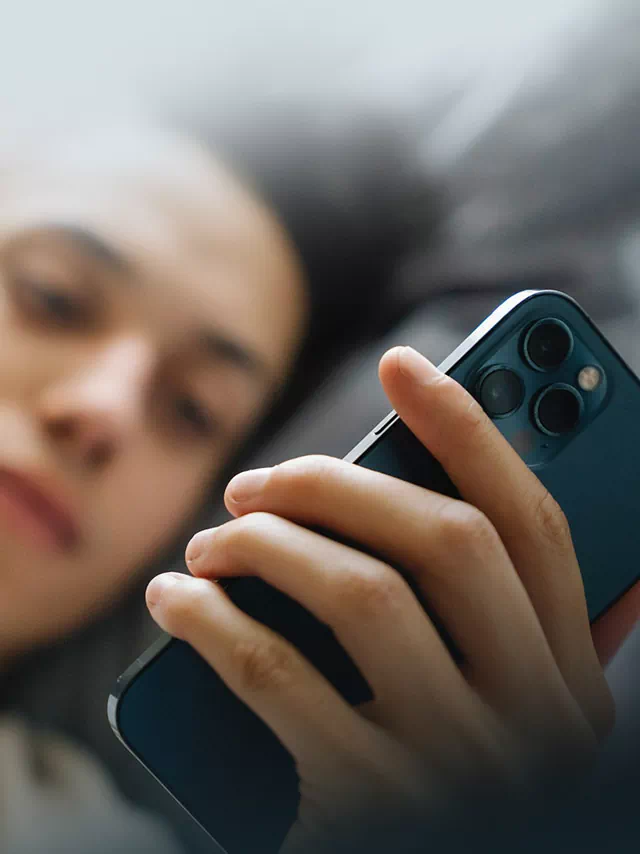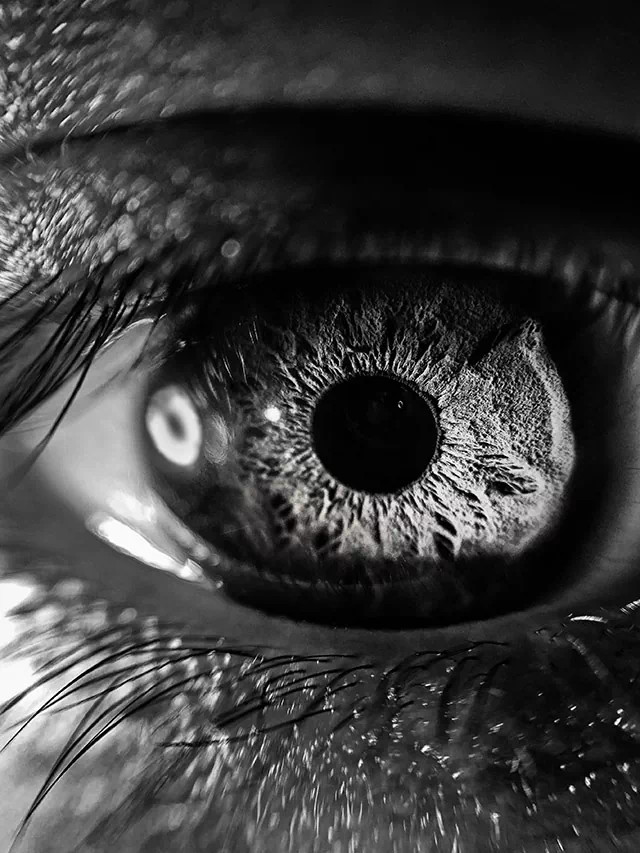The blue light emitted by screens can also interfere with the body’s production of melatonin, a hormone that regulates sleep. Additionally, staring at a screen for long periods of time can cause a person’s eyes to blink less often, leading to dry eyes.

Prolonged screen time can also contribute to more serious eye problems over time.
Here are some examples
- Digital eye strain: It is a common condition caused by prolonged use of digital devices. It can cause symptoms like eye strain, dry eyes, and headaches.
- Myopia (nearsightedness): Prolonged screen time has been linked to an increased risk of myopia. Research suggests that spending more time looking at close-up objects, such as screens, may cause the eye’s lens to grow larger, resulting in myopia.
- Blue Light Exposure: The blue light emitted by screens can suppress the release of melatonin, a hormone that regulates sleep. This can cause difficulty falling asleep, insomnia, and may contribute to eye strain and dryness
- Increased chance of developing cataracts and age-related macular degeneration (AMD): Studies has shown that prolonged screen time can lead to the development of cataracts and age-related macular degeneration over time.
In order to prevent these risks, it’s important to be mindful of how much time you’re spending on screens and to take regular breaks throughout the day to rest your eyes. It is also important to engage in activities that will help promote good vision health, such as eating a healthy diet that is rich in vitamins and minerals, getting regular exercise, and avoiding smoking.

While there is still ongoing research to fully understand the long-term effects of prolonged screen time on the eyes, it’s clear that it can lead to a variety of symptoms and conditions.
Points to consider
- Posture: Poor posture can exacerbate symptoms of CVS, as it can cause extra strain on the neck and shoulders, leading to headaches and eye strain. It’s important to maintain good posture while using screens, making sure that the screen is at the appropriate height and distance, and that the chair and desk are adjusted to the right height.
- Lighting: Glare from screens and the surrounding environment can cause eye strain and fatigue. It’s important to reduce glare by adjusting the screen settings or using a glare filter and to have appropriate lighting in the room.
- Blink rate: Staring at screens can cause people to blink less, which can dry out the eyes. Taking breaks and looking away from the screen every 20 minutes can help to increase the blink rate and reduce dryness.
- Age: Children and teens, who may be more susceptible to the effects of prolonged screen time, since their eyes are still developing. it’s particularly important for them to have regular eye exams and to be mindful of how much time they spend on screens.
It’s important to balance the benefits of technology with the potential risks to your eye health. Taking regular breaks, adjusting your posture, lighting and screen settings and consulting an eye doctor if you have any concerns can help to reduce the risks associated with prolonged screen time.
Another important aspect of screen time and eye health is the concept of “near work.” “Near work” refers to activities that involve focusing on objects that are close up, such as screens, books, and other digital devices. This type of activity can lead to a phenomenon known as “accommodative insufficiency,” which occurs when the eyes have trouble focusing on close-up objects. This can cause symptoms such as eye strain, blurred vision, and headaches, which are all symptoms of computer vision syndrome.
To minimize the effects of near work, it’s important to take regular breaks, to blink frequently and look at distant objects or to do near-far focusing activities that can help prevent eye fatigue caused by prolonged close work.
Additionally, it’s important to also pay attention to your sleep pattern, for instance, blue light exposure in the evening can disrupt sleep and make it harder to fall asleep. It’s a good idea to avoid screens for at least an hour before going to bed, or you can use blue light filter on your device or wear blue light glasses.
In summary, while screen time can have a negative impact on eye health, taking steps to minimize the risks and being mindful of how much time you spend on screens can help to keep your eyes healthy. It’s always important to pay attention to symptoms and visit an eye doctor if you have any concerns.




